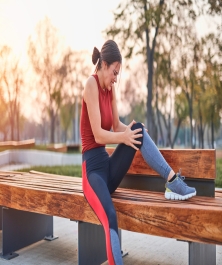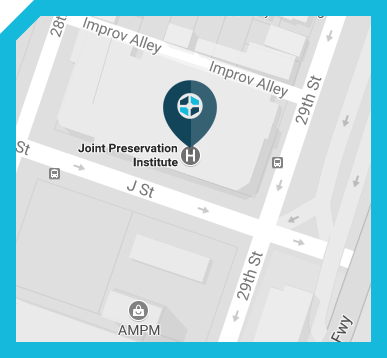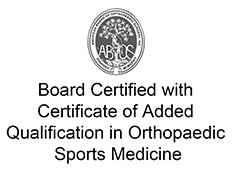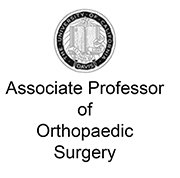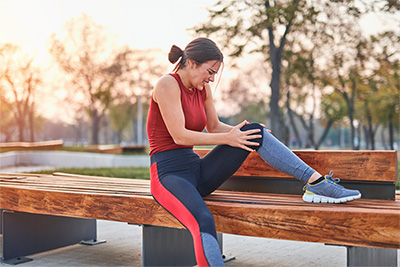
Did you know that our knees support 80% of our body weight when we stand and absorb up to one and a half times our weight when walking? The knee is the largest joint in the body and is responsible for bearing weight and facilitating movement. Keeping your knees in good shape is one of the most important things you can do to keep yourself healthy and active.
Many people find themselves sitting at a desk during the week and during their free time on a weekend, participating in physical activities like running, tennis, and golf. Weekend warriors squeezing in rigorous physical activity on their days off all too often result in aches, pains, and even more severe injuries. If you don't exercise regularly and aren't conditioned for a particular sport or activity, you put yourself at greater risk for injury. Regular exercise helps maintain your muscle strength to prevent arthritis and keep your joints flexible and better protect them from damage.
If you're experiencing knee pain, you're likely suffering from one of the most common knee injuries. Two tell-tale signs of a knee injury are pain and swelling of the knee. You may also have difficulty with the joint moving. It may feel stiff, locked up, or feel like it's catching as you bend and straighten your leg. If symptoms persist, it is a sign it is time to see an orthopedic doctor.
Common knee injuries to avoid:
- Meniscus Tear - Meniscus tears frequently occur during sports where jumping or twisting is involved.
- Tendon Tear - Falls and landing wrong often cause a tendon tear. They are prevalent in runners or in activities with a lot of jumping.
- Ligament Injury - Most commonly occurring in people playing sports when the knee is overextended or moved in a way it shouldn't move, and the ligaments cannot support the movement.
- Arthritis - Arthritis of the knee can get worse with time and stress on the joint often high-impact activities like running and interval training can make knee pain worse.
- Knee Fracture - The most common bone broken around the knee is the patella, typically caused by high impact and falls.
Dr. Amir Jamali offers cutting-edge Orthobiologics that are recommended when rest, medications, and physical therapy fail to relieve symptoms. Orthobiologics aid in the recovery of knee injuries by harnessing natural substances such as cells, tissue, blood components, and growth factors. Orthobiologics stimulate regenerations of cells, replace lost tissue, reduce pain and inflammation while improving joint function. Orthobiologics can help delay or avoid more invasive treatments.
If you suffer from knee pain, schedule an in-depth consultation with Dr. Amir Jamali at www.jointpreservationinstitute.com
Dr. Amir Jamali, founder of the Joint Preservation Institute, is a board-certified fellowship-trained orthopedic surgeon in Northern California specializing in treatments for the knee, hip and shoulder.




 Common Knee Injuries to Avoid
Common Knee Injuries to Avoid 